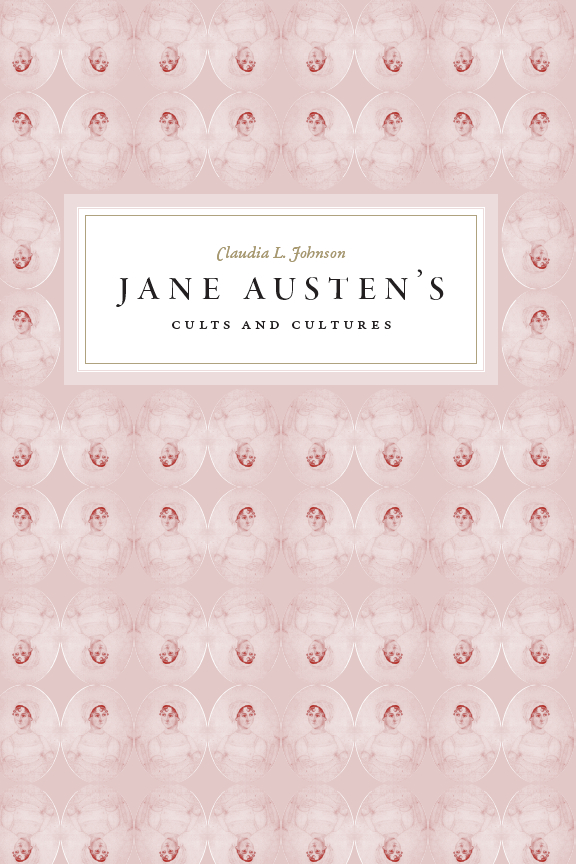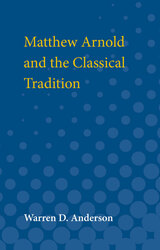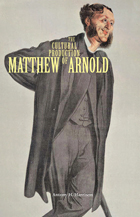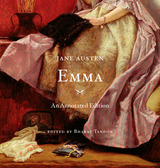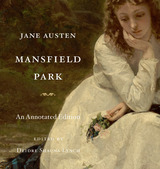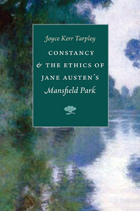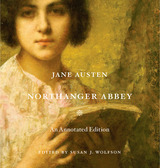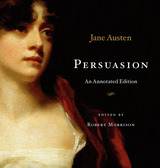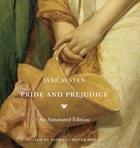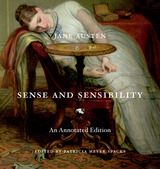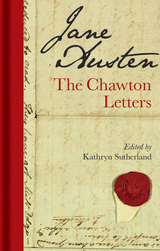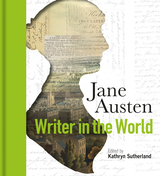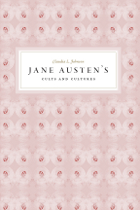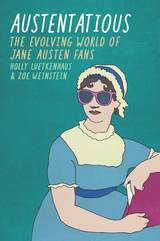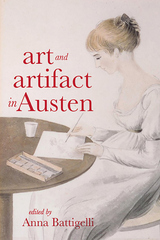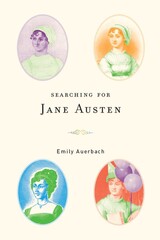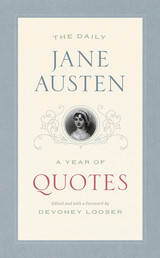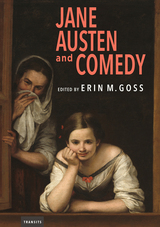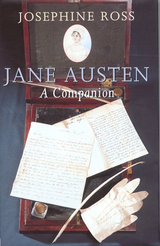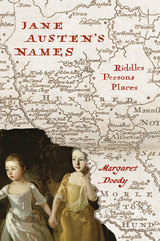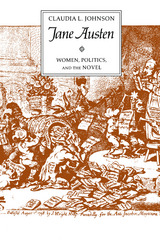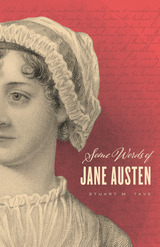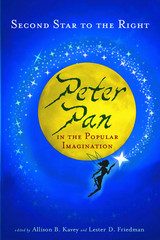“Claudia L. Johnson’s long-anticipated book on the history of Austen fandom turns out, not surprisingly, to have been amply worth the wait. With characteristic intelligence, judiciousness, and lucidity, Johnson teases out the ideas that have informed our evolving construction of this most popular and yet most elusive of literary figures. Johnson sinks her roots very deeply into the source material, showing how Austen became an icon for all seasons, giving us back the image we have required of her in war and peace, modernity and postmodernity, the British Empire and the Empire of Hollywood. Following in the tradition of studies of Shakespearean canonization, this is the real ‘Becoming Jane.’”
— William Deresiewicz, author of A Jane Austen Education
“What a pleasure to read this book! Richly informative and altogether delightful, Jane Austen’s Cults and Cultures tells about Austen in the trenches, read by soldiers on the front lines in two world wars, for sharply different reasons; about the complicated afterlife of Austen as a physical being; about the charms and disappointments of Austen’s house in its current form; about ways of reading. There’s more, too, all of it compelling, all revealing how powerfully Jane Austen survives in cultural consciousness. This is both a wonderful read and a source of great illumination.”
— Patricia Meyer Spacks, author of On Rereading
“Johnson does more than trace out Austen’s legacy and rethink the way critics and fans alike have tried to hold on to this elusive writer—she displays the wealth of the novels themselves in new, surprising, and always intelligent ways. Packed with the fruits of Johnson’s brilliant work in the archive, this book also creates a compelling narrative from the accounts of readers, worshippers, and critics alike, and fashions a very delicate path between the adoring and the critical. A monumental work by perhaps the premier scholar of Austen’s work and legacy.”
— Mary Favret, Indiana University
“There are some revealing passages that show how changing culture invites reinterpretation of Jane Austen and her works.”
— The Economist
“Johnson’s prose is lively and witty. . . . [Her] writing is infused with nuanced appreciation of Austen’s sophisticated art.”
— Times Literary Supplement
“Johnson’s writing style is a lively mix of scholarly and colorful vocabulary concisely presenting complex ideas.”
— Library Journal
“Johnson wields a wide range of fascinating sources and key texts, deftly weaving them into her argument and narrative.”
— Times Higher Education
“It was a real pleasure to read this book. It is richly informative and clearly outlines the ways in which Austen has been constructed and her writings interpreted by readers from the Victorian period through now in a way that is both scholarly and accessible and, sometime even, playful with such delightfully accurate lines as ‘the Austen they adore has more to do with the world of wonder than with the world of reason’ and ‘to be a Janeite is really a form of possession, with a profound contentment in being thus possessed.’ ”
— Austenprose.com
“Even the most devoted Janeite will learn much from this delightful book. . . . Essential.”
— Choice
“At the heart of Claudia Johnson’s warmly appreciative study is the sole authenticated image of the novelist: a portrait, by her sister, of Jane Austen with her back to the viewer. Johnson . . . traces out the silences and losses surrounding Austen. Her aim is not so much to shine a light on the fiction as on its admirers. . . . Johnson's argument about how bodies and things govern our reading of Austen is funny and illuminating.”
— Literary Review
“Johnson’s book makes sense, directly and indirectly, of the factual-fiction impulse behind novels like Pattillo’s Jane Austen Ruined My Life, telling the fascinating story of how the mystique of Austen was gradually created, maintained, and spun out in unpredictable ways in the years after her death in 1817. Johnson unearths both the many-sided truths and the wide-ranging implications of our false fantasies of Austen, drawing conclusions from evidence ranging from portraits and memorials to fairy tales and relics. . . . Johnson’s insights and discoveries are thought provoking.”
— Los Angeles Review of Books
“Consideration of such matters as Jane Austen’s Body, Jane Austen’s Magic, Jane Austen’s World War I, Jane Austen’s World War II, Jane Austen’s House—and, finally, Jane Austen’s Ubiquity—offers valuable insights to enrich readings and re-readings at the Johnson-endorsed slow, reflective pace, of the most important component of Jane Austen’s legacy: her words, which Johnson aptly calls “the real thing.” . . . Johnson is a top-tier intellect who writes with erudition and elegance.”
— JASNA Newsletter
“Johnson builds on her previous essays and develops a nuanced, carefully historicized analysis of critical and popular response to Austen at crucial moments over the past two hundred years. . . . In addition to Johnson’s strong historical sense, what distinguishes her study is her close attention to the language and imagery used by Austen’s readers and to the ideological freight that this language carries.”
— Studies in English Literature 1500-1900
“Johnson pokes gentle fun at Janeites while basking in being one herself. There is humility and balance in her arguments and a great deal of (mostly gentle) humour. . . . There is exquisite detail in each chapter, labours of love and obsession in constructing her analyses of the various cults and cultures by reviewing reviewers throughout these different historical periods.”
— Sensibilities
“[A] beautifully rendered piece of scholarship. Lucid prose, meticulous research, and cogent analysis, together with a generous number of illustrations, make this book not only essential reading for Austen scholars, but also that rare monograph with appeal for readers beyond the academy.”
— Eighteenth-Century Fiction
“Johnson provides new insights by teasing out the essential paradoxes of Austen-reader dynamics in surveying the historical and cultural factors impacting Austen fame and fandom. . . . A remarkable contribution to the re-viewing of the ongoing Austen cults.”
— Kritikon Litterarum
